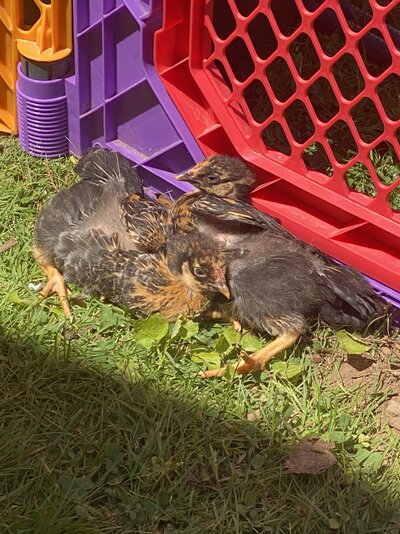- Thread starter
- #391
Well, not really. For me, that was definitely not "it depends" at that time. It was non-negotiable. And it is still the best course of action for most anyone who is serious about flock health-I would never have purchased anything from someone who treated respiratory illness or even had it in the flock at any time. It was earlier in my chicken keeping career and I was not willing to have a 100% closed flock where I could never sell eggs or chicks. None were coming in from individual sellers, flea markets or auctions, and after the first or second year, not from hatcheries, either, until six weeks ago, but I wanted to sell extra chicks without any qualms. Understand that this last batch may be my last group, ever, so we are near the end of my chicken breeding/keeping career. That is the only reason we bought hatchery stock again and decided to just have a fun flock, not breeder flocks. We have personal issues that may make it difficult to impossible to keep them much longer-my husband is a disabled veteran.
Plus, you have to remember....these were MY Ten Commandments of Good Flock Management, what works and still works for me here, not "orders" for everyone else; I explained in the first post that these were my rules in a nutshell for those always contacting me for advice , as I recall. And seeing as how I have quite a few hens who are now 9-13+ years old and healthy and most all who die now, after the substandard hatchery layers died off, die from normal old age, I think they are still good rules to live by for most people.
Plus, you have to remember....these were MY Ten Commandments of Good Flock Management, what works and still works for me here, not "orders" for everyone else; I explained in the first post that these were my rules in a nutshell for those always contacting me for advice , as I recall. And seeing as how I have quite a few hens who are now 9-13+ years old and healthy and most all who die now, after the substandard hatchery layers died off, die from normal old age, I think they are still good rules to live by for most people.






